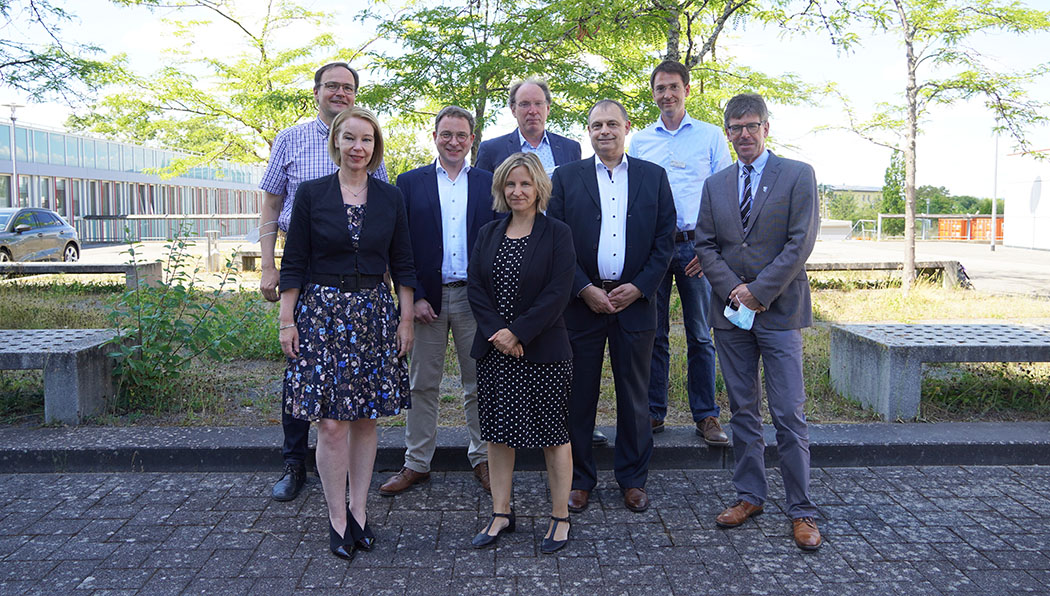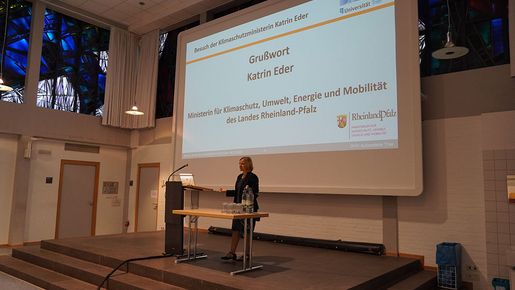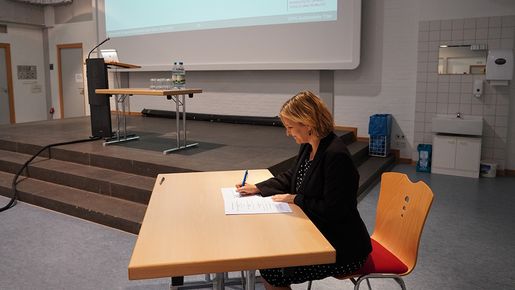Guaranteeing unrestricted access to fresh water in Germany is generally taken for granted. However, the appearance of brilliant water is illusory – climate change and urbanization are placing an enormous strain on natural resources. Demographic and societal changes, political targets for wastewater treatment, and energy-related CO2 emissions from water supply are among the many new challenges facing the water industry. Water utilities across the nation are facing similar issues. Variables such as size, population density, types of uses, topology of the service area, and different water and wastewater network structures all influence the issues. New and resilient solutions must be found. With engineering excellence and AI, it is possible to ensure the intelligent management of water.
"The gain in knowledge and knowledge transfer via digital twins are groundbreak-ing for Water 4.0."
"The efficient and responsible use of natural resources is a social responsibility and a decisive contribution to climate protection and adaptation to climate change. That is why we support the forward-looking research of the DFKI and Trier University in this project. The gain in knowledge and knowledge transfer via digital twins are groundbreaking for Water 4.0," emphasized Environment Minister Katrin Eder. "The vehement continuation of the digitalization of water management can make a major contribution to meeting the new challenges. The state of Rhineland-Palatinate is firmly committed to the topic of AI for the environment and sustainability and has therefore supported DFKI for more than 30 years."
Prof. Dr. Andreas Dengel, Managing Director of the DFKI in Kaiserslautern and AI Ambassador of the state of Rheinland-Pfalz: "The use of digital twins from the field of artificial intelligence will significantly influence industrial processes, includ-ing water management, in the coming years. We are pleased to make another es-sential research contribution to sustainable and environmentally friendly AI together with the Environmental Campus Birkenfeld of Trier University. We see the use of AI for societal challenges as part of the DFKI mission. With the competence center "DFKI4planet" and various projects from the broad spectrum of AI, we have set our-selves the goal of effectively using the great potential of intelligent technologies for environmental protection and sustainability."
The President of Trier University of Applied Sciences, Prof. Dr. Dorit Schumann, adds: "Digitization and sustainability are key topics at Trier University of Applied Sciences and I am particularly pleased that the 'elixir of life water' is at the center of the cooperation.
„As a result, we are hoping to be able to make processes in the water sector more resource-efficient and resilient to disruptions in the future."
Project leader Prof. Dr. Ralph Bergmann explains: "We see a great development opportunity to react to challenges in the water sector with the help of experience-based methods and to be able to act flexibly with the help of forecasting and simula-tion models. As a result, we hope to be able to make processes in the water sector more resource-efficient and resilient to disruptions in the future. We are looking for-ward to the collaboration with the Umwelt-Campus, as we particularly appreciate the knowledge transfer of the researchers." Prof. Dr. Stefan Naumann, who heads the project on behalf of the Institute for Software Systems at the Umwelt-Campus, sees considerable opportunities in this cooperation "to achieve scientific progress both in the information technology field and in the application field of water and energy conservation, and also to transfer this progress into practice."
"AI and water management" - a path to Water 4.0.
Following the "Industry 4.0" initiative, the "German Water Partnership" coined the term "Water 4.0" to transform existing industrial production facilities into cyberphysical systems. The optimal networking of virtual and real water systems is to be applied to water management in the future, considering planning, construction and operation. The cooperation between Trier University of Applied Sciences (Environ-mental Campus Birkenfeld) and DFKI aims, among other things, to develop joint model projects. For municipal decision-makers, the jointly developed results can serve as a good starting point for the development of measures. Furthermore, the potential of developing a digital twin in the water industry is to be concretized in an exemplary manner.
Basically, the subject of this cooperation will be:
- The reference model development and validation "Digital Twin Water Economy".
- Use cases for the application of artificial intelligence in water management.
- Scientific support of projects and knowledge transfer.
GOOD TO KNOW | DIGITAL TWINS IN WATER MANAGEMENT
A digital twin is a virtual image of a product or process, which is supplied with real data. Before resources are deployed in the real world, digital twins are of great benefit. With them, the company can carry out realistic modeling and optimize and plan production processes. For example, forecasting or simulation models can be made with digital twins. In this way, errors in the management of the systems can be solved or even prevented. Examples include leak location, energy efficiency, water quality, maintenance planning, and early response to emergencies. Frequent errors can result in financial losses and pose numerous risks to the company. This makes the application of digital twins in water management even more sensible. Based on real-time modeling and value creation of water and environmental data, a success-ful basic building block of Industry 4.0 is implemented in the water sector.



